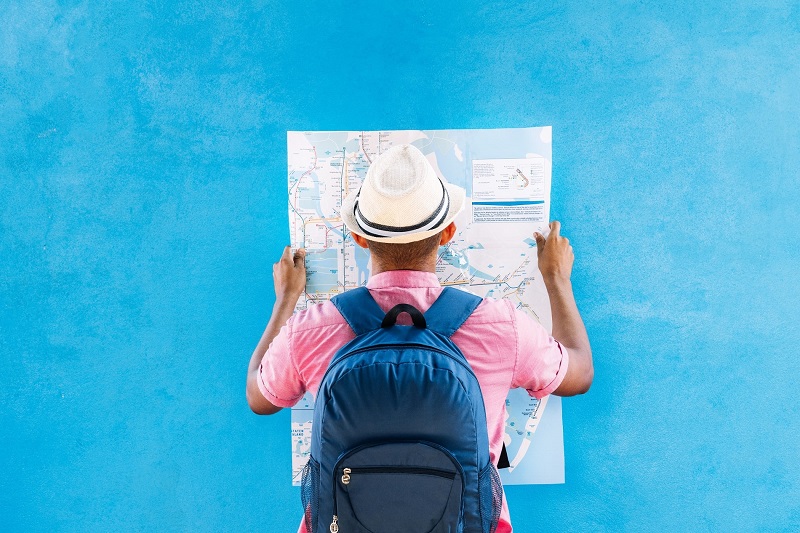Ever dreamt of experiencing a new place not as a tourist, but as a local? I’ve been there, and I can tell you, there’s no better way to soak in the true essence of a place. Traveling like a local lets you see the city’s soul, not just its touristy skin.
Understanding the Concept of Traveling Like a Local
In essence, traveling like a local encompasses immersing oneself fully into the cultural fabric of a place, shedding the typical tourist persona. This approach crafts a uniquely personalized, and deeply engaging travel experience.
The Importance of Authentic Experiences
Authentic experiences are paramount in local travel, providing first-hand understandings of a culture distinct from the typical tourist perspective. For instance, while tourists flock to famous pizzerias in Italy, locals know the backstreet eateries that’ve perfected traditional recipes over generations. Unlike generic guidebooks, these experiences weave memories that are uniquely engaging and forever etched in the traveler’s mind.
The Difference Between a Tourist and a Local Traveler
While tourists view a place through a lens that highlights prominent attractions, local travelers delve deeper, seeking the everyday rhythm that defines the culture. A tourist might visit New York’s famous Times Square, absorbed in its dazzling lights and massive billboards. However, a local traveler might instead explore Brighton Beach, a lesser-known neighborhood where the sense of community is palpable, and Russian culture thrives. The uniqueness of a place lies not in its cityscape but in the life that thrives within it, which the local traveler aims to discover.
Preparing to Travel Like a Local
Dipping my toes into local culture means more than just leaving footprints at famous landmarks. Preparation becomes vital for immersing myself fully.
Research and Understanding Local Customs
Before packing my bags, I dive deep into a thorough research of my destination’s customs and traditions. For instance, etiquette norms vary vastly; in Japan, bowing is a show of respect, while in India, greeting with “Namaste” and a slight bow represents the same. This research, referencing authoritative sources and travel guides, helps me develop a subtle understanding of indigenous customs, preventing me from unintentional disrespect.
Learning Key Phrases of the Local Language
Knowing the local lingo isn’t just a handy travel tool; it’s a bridge, connecting me with native people. Even a few basics such as “Hello,” “Thank you,” or “Where’s the bathroom?” can go a long way. Example: in France, “Bonjour,” “Merci,” and “Où se trouve les toilettes?” won’t make me fluent, but it does demonstrate my efforts to connect and respect the local culture. Language learning apps like Duolingo or Rosetta Stone often come to my rescue for this purpose.
Techniques to Blend In and Engage Authentically
Achieving an authentic local experience while traveling involves blending into the local scene and engaging meaningfully with the culture.
Dressing Appropriately
Clothing often tells a tale of cultural nuances. Observing and respecting these marks a significant step toward blending in during a journey. Take time to research on the dressing customs of the place you’re visiting. For instance, it’s critical to dress modestly when exploring Middle Eastern countries to show respect for their conservative norms. Therefore, pack clothing that aligns with the local dressing codes. Websites like GlobeTrekker’s guide provide insights on dress etiquette for different locales.
Using Public Transportation
Opting for public transportation over cabs or rental cars sets the stage for an authentic local experience. It helps immerse oneself in the everyday life of locals, creating a firsthand perspective of their daily routines, preferred commuting modes, or popular routes. For instance, riding a ‘bicitaxi’ in Cuba or a ‘tuk-tuk’ in Thailand can prove to be a delightful revelation. Use local commuting apps like Citymapper or Moovit for map directions and transit schedules in various global cities.
Participating in Local Activities
Immerse fully into the local culture by taking part in local festivals, markets, or workshops. For instance, join a Samba class in Brazil, participate in a Tomato fight festival ‘La Tomatina’ in Valencia, Spain, or visit the local farmers market in San Francisco’s Ferry Building. These activities provide deeper access to local traditions and enable meaningful interactions with the native people. Websites like Meetup or Couchsurfing host a variety of local community activities and offer local meetups.
The Role of Technology in Local Travel
The evolution of technology, notably the advent of various apps and tools, has fundamentally redefined the local travel experience. Let’s dig deeper into how leveraging technology can aid local travel and when it might be good to put it aside to fully engage.
Useful Apps and Tools
Technology can be a powerful ally in achieving an authentic local travel experience as it paves the way for efficient planning and problem-solving. Handy apps like Google Maps offer street-level navigation in unfamiliar areas, negating the need for a physical map. Tools like Duolingo can assist in overcoming language barriers by offering on-the-go language lessons and translations in a multitude of languages. TripAdvisor gives a snapshot of top-rated local restaurants, while Airbnb offers home stays for immersive local living experience. Remember, use of such apps isn’t just about convenience. It’s an enabler, enhancing one’s ability to experience authentic local culture without being lost or overwhelmed.
When to Disconnect to Fully Engage
While technology has its perks, local travel thrives on experiences and connections that extend beyond the digital realm. There may be instances where disconnecting from technological devices allows for a more authentic, immersive travel experience. Engaging face-to-face with locals in traditional markets, venturing into unique cultural festivities, or even sitting in a local café absorbing the rhythm and hum of conversation can deepen cultural immersion. It’s in taking a step back from technology, I’ve found, that one can truly indulge in the raw authenticity of local moments. These digital breaks are not about abandoning technology, but rather appreciating the harmony between being tech-equipped and enjoying unfiltered, real-world experiences.
Benefits and Challenges
In this journey of experiencing a new culture from a local perspective, there are both rewards and challenges that lie ahead. Let’s delve deeper into them.
Deeper Cultural Immersion
Choosing to travel like a local invites deeper cultural immersion. It’s in the tranquillity of local cafes, the rustling of plants in local markets, and the soft hum of local language exchanges where you truly experience the essence of a place. This immersion also invites more authentic interactions. Meeting locals, often artisans and small business owners, can lead to genuine friendships and enriching exchanges. For instance, traveling to France and engaging with local boulangeries (bakeries) may offer a better understanding of French cuisine and culture than reading about it in a guidebook.
Possible Missteps and How to Navigate Them
Traveling like a local isn’t always easy. Without a guide, miscommunication can occur, and you might miss out on important sights or experiences due to the lack of tailored advice usually provided by professional agencies. For example, not realizing that most shops in Spain close during siesta might lead you into an empty marketplace.
However, consider these potential missteps as a part of the journey. Equip yourself with basic language skills of the region to communicate effectively. Apps such as Google Translate can prove beneficial in such instances. Take note of local customs and traditions beforehand to avoid disconcerting situations. Importantly, stay open-minded and adaptable to get the most out of your local travel experiences. Although the challenges may seem difficult, the rewards of a deeper cultural immersion are truly invaluable.
Conclusion
So there you have it! Traveling like a local isn’t just about saving a few bucks or ticking off landmarks from your list. It’s about diving headfirst into the culture, the people, and the everyday life of the place you’re visiting. It’s about trying out the local transport, tasting the street food, and even stumbling over a few words in the local language. Sure, there might be a few hiccups along the way, but that’s all part of the adventure. With a little help from technology and a whole lot of open-mindedness, you can turn any trip into a deeply enriching experience. So next time you pack your bags, don’t just plan a trip. Plan an adventure. After all, the world is full of hidden gems, waiting to be discovered by travelers like you.










0 Comments